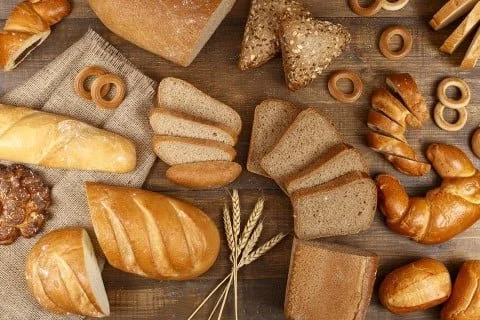An article from Insider.
Unless you're on a specific doctor-recommended plan to cut carbs for a medical condition, there's no reason to arbitrarily deprive yourself of bread, experts say.
Retired body builder Arnold Schwarzenegger recently revealed he cut out bread to reach his goal weight, but you don't have to fear the carb, according to nutritionists.
Three dietitians told Insider they enjoy bread every day, and that you can include it in your diet even if you're trying to eat healthier by opting for whole grain varieties with nutritious toppings like eggs, avocado, and salmon.
Bread and other carbs aren't the enemy
Bread restrictive diets — like keto and low-carb meal plans — give bread a bad reputation, registered dietitian Rachael Hartley said.
"Bread gets unfairly demonized, more so than many other sources of carbohydrate," she told Insider.
But bread is a nutritional mainstay for a reason — it's a convenient, cheap, and widely-appealing source of energy and has important nutrients like iron and B-vitamins thiamine, niacin, folic acid and riboflavin.
Hartley said she enjoys bread every day: some recent favorites include pumpernickel with cream cheese and salmon, naan (Indian flatbread) with curry, or whatever is fresh from her local bakery.
"It's a staple food all over the world, and has been for thousands of years! That's because our body needs carbs, as it's our main source of fuel," she said.
Carbs are a powerful resource for athletes, too. Eating carbs before or after a workout can help fuel your body's supply of glycogen, which both powers your muscles and helps rebuild them after exercise.
Two-time CrossFit Games champ, Katrin Davidsdottir, said that after mistakenly avoiding bread for years, it's now crucial fuel for her intense workouts.
For healthier bread options, stick to whole grains
If you're looking to improve your diet, some types of bread will have more of a nutritional punch than others.
"While it is true that white bread and white flour bread products are less nutrient-dense, high in sugar, and lead to inflammation and weight gain, the same is not true for their whole grain counterparts" registered dietitian Brigitte Zeitlin told Insider. "Whole grain bread offers up some serious nutrition."
That's because it's less processed than white bread, and contains more fiber, B vitamins, magnesium, and other nutrients.
Zeitlin enjoys whole grain toast with an egg scramble for breakfast or brunch, and as a tuna melt for lunch.
Don't forget the toppings
Few people sit down and eat a plain loaf of bread. We often load it up with toppings like nut butter, jam, cheeses, meats, and more. While delicious, these toppings can sometimes be very calorie-dense, and many people don't measure them, which can lead to double or quadruple the calories you thought you were eating.
"Bread has been maligned — but excess calories may be more about the company bread keeps, like butter," Bonnie Taub-Dix, registered dietitian nutritionist and author of Read It Before You Eat It — Taking You from Label to Table, told Insider.
That's not a bad thing, but it can sometimes lead to the mistaken impression that bread is linked to weight gain. It doesn't have to be, said Taub-Dix, who said she eats bread every day "without exception — unless it's a bagel."
"When whole grain bread becomes a part of your meal, there's a good chance you'll feel more satiated and less likely to go foraging for a bread-like substitute like chips or cookies between meals," Taub-Dix said.
For a satisfying, protein-packed meal or snack, you can also opt to top it with all kinds of healthy, nutrient-rich extras like avocado, eggs, tuna, salmon, and cream cheese.
If weight loss is a goal for you, it can be helpful to occasionally measure out serving sizes of butters and jams so you know how much you're eating.
Context matters for a healthy diet
Finally, regardless of what type of bread you indulge in, there's no need to worry that a single food item will make or break your diet. That's because nutrition is about overall patterns of eating.
Experts often recommend making healthy, nutrient-dense whole foods the majority of your diet, 80-90% of your calories, while allowing the rest to be foods you enjoy regardless of nutritional value. This is sometimes called the 80/20 rule.
"If you think cutting carbs is the most effective, but it makes you die inside, don't do it," registered dietitian Georgie Fear previously told Insider.
That means that even an occasional slice of white bread is unlikely to sabotage your nutrition goals, and you certainly don't have to ditch the bread completely to be healthy.

